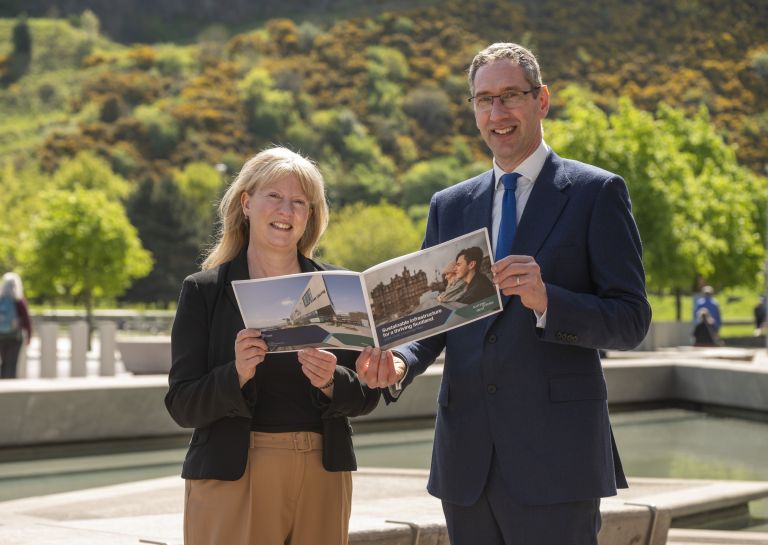Infrastructure priorities set to support a thriving Scotland

Scottish Government’s infrastructure body, the Scottish Futures Trust (SFT) has today (12 May 2025) published its 2025-30 Corporate Plan, setting out how it will deliver for the people and places of Scotland by driving best practice in infrastructure strategy, investment, delivery and management.
Over the next five years, SFT will work with its public and private sector partners to achieve its vision of sustainable infrastructure for a thriving Scotland, including the following priorities:
- Delivering a 25-30 year infrastructure ‘needs assessment’ to give a long-term vision of the country’s infrastructure needs, helping to guide Government’s investment decision making, and supporting public bodies in developing their own sustainable asset strategies
- Attracting private investment into the energy transition and sustainable places, using our commercial skills to help set the market conditions to accelerate investment into heat networks, EV charging and the hydrogen industry
- Improving delivery across £ billions of infrastructure projects with a focus on building programmes for efficiency, accelerating adoption of digitalisation and modern methods, along with supporting public and private sector partners to deliver improved outcomes for and from the construction industries
- Enhancing public sector property asset management by maximising sharing and use of existing buildings, integrating maintenance and decarbonisation, securing best value from surplus assets, and providing centralised expertise to the public sector as 19 PFI projects reach the end of their contracts
Shona Robison, Cabinet Secretary for Finance and Local Government, said: “The Scottish Futures Trust’s Corporate Plan will support delivery of our priorities over the next five years.
“The 2025-26 Scottish Budget set out over £7 billion of capital spending that will contribute to reducing child poverty, grasp the opportunities of net zero, boost economic growth and maintain high-quality public services and infrastructure.
“SFT will continue to play a key role in our broad infrastructure investment plans through its leadership in infrastructure strategy, finance, delivery, and use. I thank SFT’s teams for their work in developing the plan.”
Joe Philipsz, chair of the Scottish Futures Trust, said: “Since its formation, SFT has played a critical role in assisting the Scottish Government and public sector bodies in delivering world class infrastructure projects for Scotland. The need for future investment in our infrastructure is of paramount importance to the growth of the Scottish economy.
“We will continue to develop and deliver infrastructure strategies that support Scotland’s places and communities, and encourage stronger collaborations to deliver improved services from shared locations. Our team will continue to seek the substantial private sector investment that Scotland needs for infrastructure and, in particular, to deliver a just energy transition.”
Peter Reekie, chief executive of the Scottish Futures Trust, explained: “Our new corporate plan reflects our commitment to creating a sustainable, inclusive and prosperous Scotland.
“It’s our privilege to act as a centre of expertise, inspiring ambition to push forward innovations in infrastructure strategy, investment, delivery and management. Our unique multidisciplinary team brokers vital collaborations to create the joined-up infrastructure systems needed to transform places, address climate change and support public service reform.
“We are determined to deliver rewarding opportunities for the infrastructure and construction sectors, and achieving best value for our public sector colleagues. These twin aims motivate us as we work closely with our partners to drive forward projects that improve lives, creates jobs and ensure Scotland’s infrastructure meets the evolving needs of communities and businesses today and in the future.”
